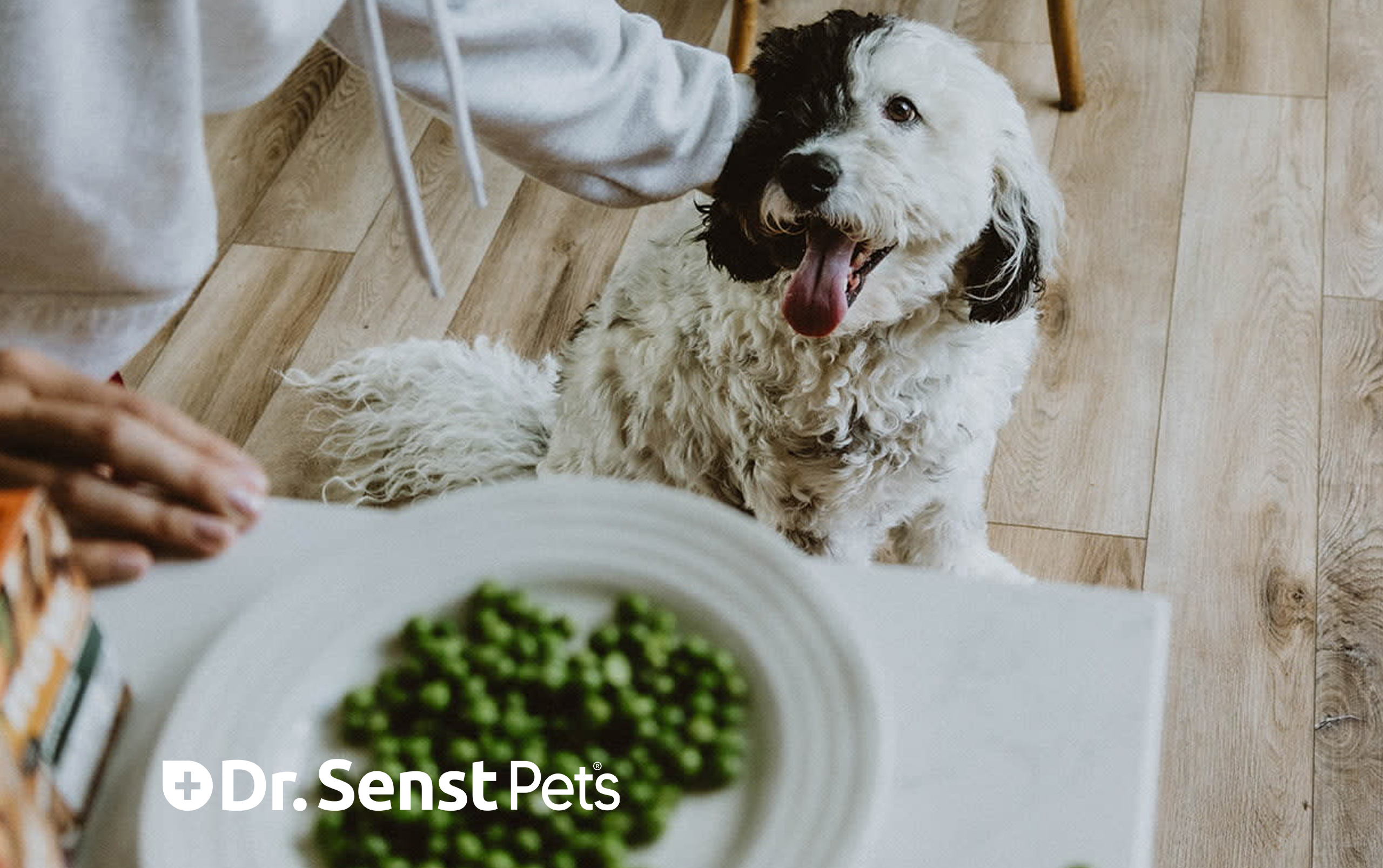
- by Dr.Thilo Senst
Can Dogs Eat Peas? Benefits, Risks, and Feeding Tips
- by Dr.Thilo Senst
Can Dogs Eat Peas? A Complete Guide to Feeding Peas to Dogs
As a pet owner, you're always on the lookout for healthy food options for your dog. One common question is, "Can dogs eat peas?" The simple answer is yes, dogs can eat peas. However, as with any food, there are specific considerations you need to keep in mind before making peas a regular part of your dog's diet. In this article, we’ll explore the benefits and potential risks of feeding peas to dogs, supported by relevant facts and figures.
Yes, dogs can eat peas, and many enjoy them as a tasty, crunchy treat. Peas are low in calories and packed with essential vitamins and minerals that contribute to your dog's overall health. However, as with any food, moderation is key. Overfeeding peas, or any other treat, can lead to digestive problems, particularly in dogs with sensitive stomachs.
Dogs can eat several types of peas, including:
It’s important to ensure that peas are plain and not served with any seasoning, butter, or additives that could be harmful to your pet.
Peas are a powerhouse of nutrients, offering a range of health benefits for your dog. Here are some of the key nutrients found in peas:
According to a 2022 report from the Pet Food Manufacturers’ Association (PFMA), around 42% of UK dog owners actively seek out healthy treats and snacks, with vegetables like peas being a popular choice.
While peas are safe and nutritious for dogs, they should not become a daily staple in your dog's diet. Feeding peas occasionally as a treat is fine, but giving too many could lead to digestive upset. The high fibre content in peas, when consumed in large quantities, may cause bloating or gas in some dogs.
Analogy: Think of peas as you would a healthy snack like fruit for yourself — it’s fine to enjoy them regularly, but you wouldn’t want to replace all your meals with fruit alone.
There are a few simple ways to incorporate peas into your dog's diet:
While peas are generally safe for dogs, they may not be suitable for all dogs, particularly those with certain health issues. Here’s a closer look:
Peas contain purines, which can be converted into uric acid in the body. This can pose a problem for dogs with kidney issues, as their kidneys may struggle to filter out uric acid efficiently. If your dog has a history of kidney problems, it’s best to avoid peas or consult your vet before feeding them to your pet.
Some dogs may experience digestive upset after eating peas. If your dog has a sensitive stomach, introduce peas slowly and monitor for any signs of bloating, gas, or diarrhoea.
Peas have a moderate glycaemic index, meaning they can raise blood sugar levels. If your dog has diabetes, consult with your vet before feeding them peas to ensure it won’t affect their condition.
There has been ongoing debate about the inclusion of legumes, such as peas, in commercial dog food. The Food and Drug Administration (FDA) in the United States raised concerns in 2018 about a possible link between grain-free diets, which often include legumes like peas, and dilated cardiomyopathy (DCM) in dogs. Although this investigation is ongoing and conclusive evidence has not been established, it’s important to be mindful of the overall composition of your dog's diet.
If peas are included as part of a balanced diet and offered in moderation, they are unlikely to cause harm. However, it’s essential to be aware of the full picture and consult your vet if you have any concerns.
1. Can puppies eat peas?
Yes, puppies can eat peas in moderation. They are a good source of vitamins and fibre, but should be introduced gradually to avoid digestive upset.
2. Are canned peas safe for dogs?
It’s best to avoid canned peas, as they often contain added salt, which can be harmful to dogs. Stick to fresh, frozen, or cooked peas.
3. Can peas cause allergies in dogs?
While peas are not a common allergen for dogs, some dogs may have sensitivities. If you notice any signs of an allergic reaction, such as itching, swelling, or vomiting, stop feeding peas and consult your vet.
4. How many peas can I give my dog?
Peas should be fed in moderation. As a guideline, give small dogs a tablespoon or two, and medium to large dogs can have a slightly larger serving, but not as a primary meal.
5. Can peas cause bloating in dogs?
In some dogs, peas can cause bloating due to their high fibre content. If your dog is prone to bloating, it’s best to offer peas in small amounts and monitor their reaction.
In summary, dogs can eat peas, and these tiny green vegetables offer a wealth of health benefits when served in moderation. They are low in calories, rich in vitamins and fibre, and make for a nutritious, crunchy snack. However, as with any food, it's important to offer peas in appropriate portions and to monitor your dog's reaction.
To support your dog’s overall health, consider including natural, vet-recommended supplements and products from the Dr. Senst Pets Range.
![]()
Enter your details & download our comprehensive 50+ page printable Dr. Senst Pet Care Planner completley FREE! - keep track of all your pet’s needs, from medical history and training to vet visits, grooming, diet, and more!










Share:
Managing Cat Issues with Regular Check-Ups: Prevention is Key
Can Dogs Eat Pumpkin? Health Benefits and Safe Feeding Tips